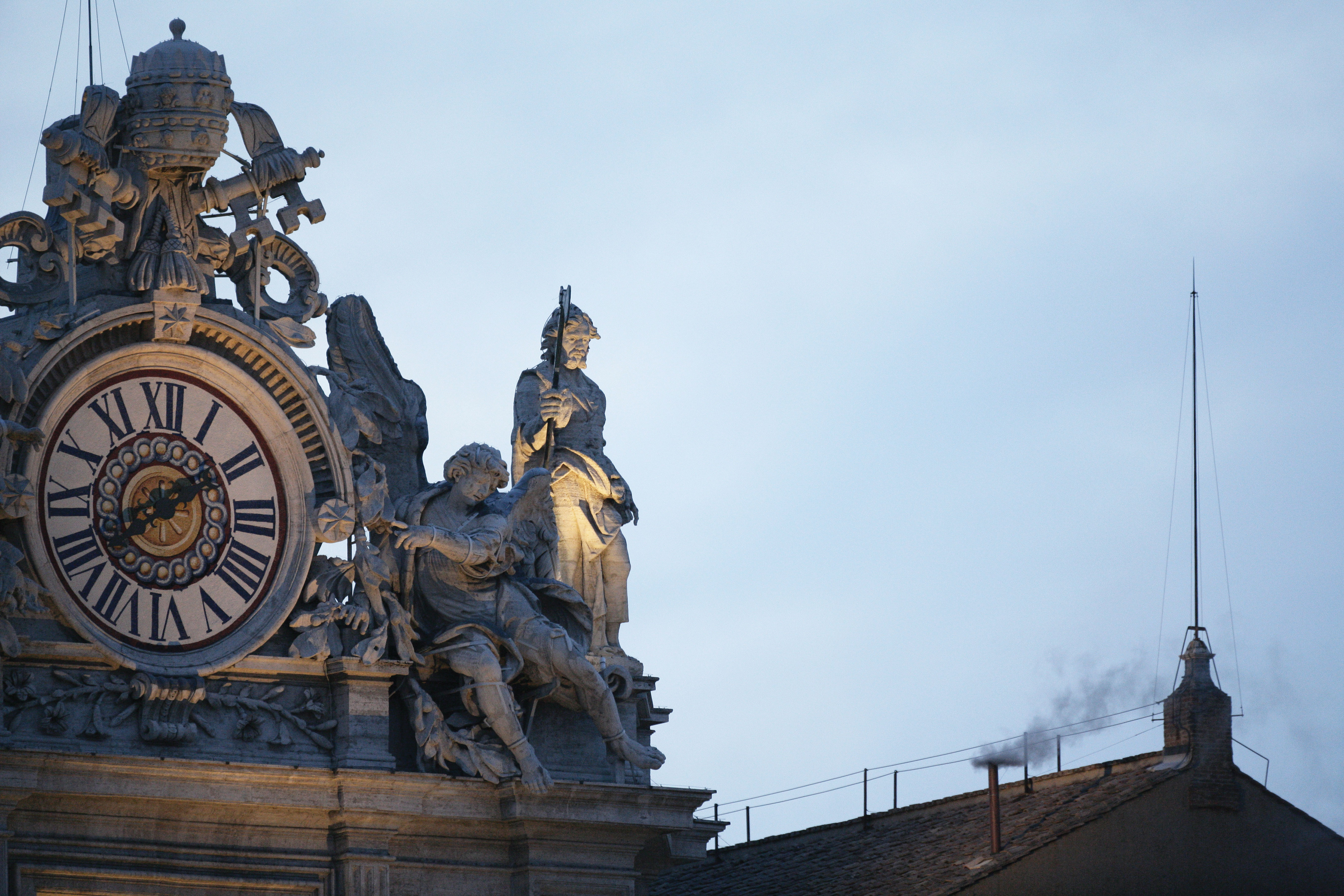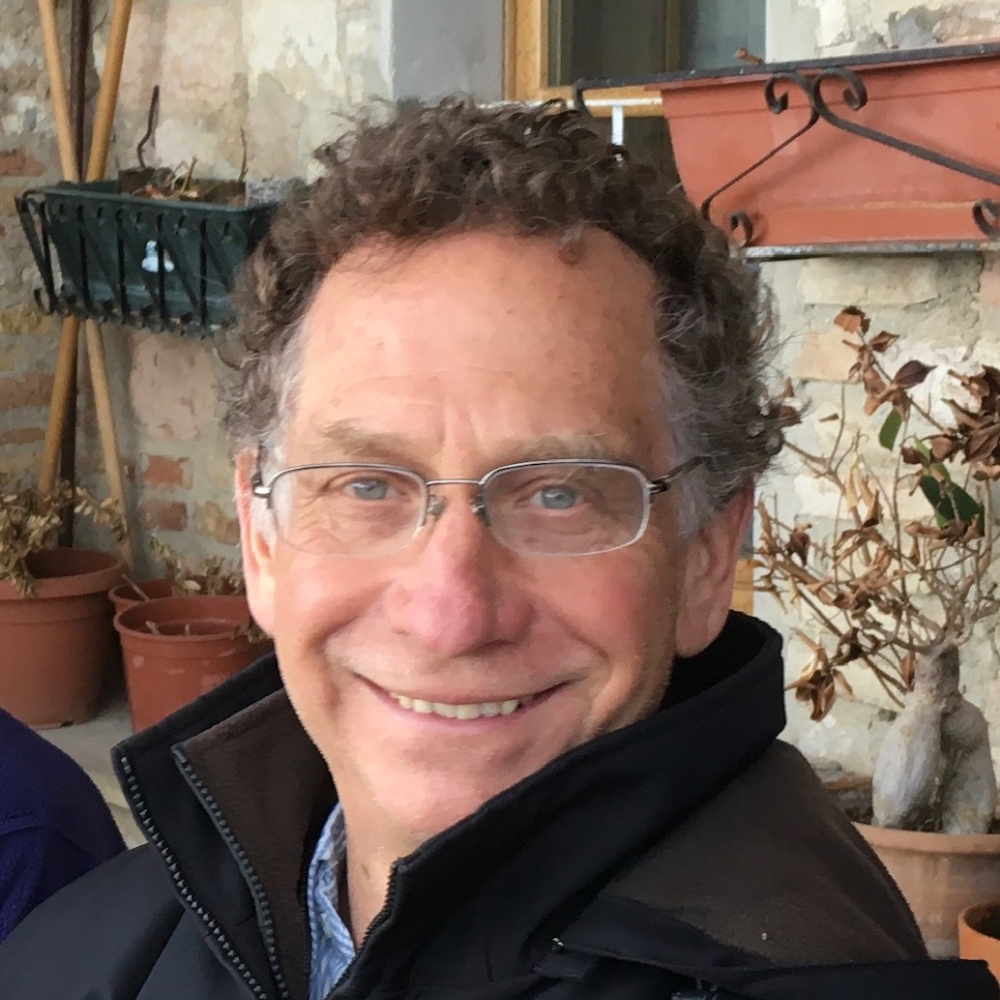
Fumata nera in the Sistine Chapel, indicating that there was not a two-thirds majority in the papal election at the Conclave.
Eight years after the election of Pope Benedict XVI, the eyes of the world will again be looking toward the roof of the Sistine Chapel to see the white smoke that will announce the election of a new Pope. The choice of the cardinals, even though guided by the Holy Spirit, will be unprecedented because there is a man still living who wore the Fisherman’s Ring until a few days ago: Benedict XVI, the first Pope in 700 years to renounce his office.
On the afternoon of the first day of voting — now expected sometime between March 11 and March 15, but the date is not at all sure — one ballot may be held.
If a ballot takes place on the afternoon of the first day and no one is elected, or no ballot had taken place, four ballots are held on each successive day: two each morning and two each afternoon.
Once a Pope is elected and accepts his election, the senior Cardinal Deacon (the Cardinal Protodeacon, currently Cardinal Jean-Louis Tauran) appears at the main balcony of the basilica’s façade to proclaim the new Pope with the Latin phrase (assuming the new Pope was a cardinal):
Annuntio vobis gaudium magnum:
Habemus Papam!
Eminentissimum ac Reverendissimum Dominum,
Dominum [forename],
Sanctae Romanae Ecclesiae Cardinalem [surname],
qui sibi nomen imposuit [papal name].
(“I announce to you a great joy:
We have a Pope!
The Most Eminent and Most Reverend Lord,
Lord [forename],
Cardinal of the Holy Roman Church [surname],
who takes to himself the name [papal name].”)
Whoever that man is — whether he is from Europe, Latin America, Asia, Africa or North America — the man who steps out on that balcony will be forced to confront two grave difficulties: attacks on the Church from without, from the secular world, and betrayal and corruption within the Church.
The most serious of these threats is the second. The Church can resist pressure from without. But if the faith of the Church withers from within, then the Church is truly weakened.
In this context, it seemed fitting to recall once more the words that Joseph Ratzinger spoke during the Good Friday Via Crucis in Rome just a few days before Pope John Paul II died in 2005, and just a few weeks before Ratzinger was elected Pope Benedict XVI.
MEDITATION
By Joseph Ratzinger
What can the third fall of Jesus under the Cross say to us?
We have considered the fall of man in general, and the falling of many Christians away from Christ and into a godless secularism. Should we not also think of how much Christ suffers in his own Church? How often is the holy sacrament of his Presence abused, how often must he enter empty and evil hearts!
How often do we celebrate only ourselves, without even realizing that he is there! How often is his Word twisted and misused! What little faith is present behind so many theories, so many empty words! How much filth there is in the Church, and even among those who, in the priesthood, ought to belong entirely to him! How much pride, how much self-complacency!
What little respect we pay to the Sacrament of Reconciliation, where he waits for us, ready to raise us up whenever we fall!
All this is present in his Passion. His betrayal by his disciples, their unworthy reception of his Body and Blood, is certainly the greatest suffering endured by the Redeemer; it pierces his heart. We can only call to him from the depths of our hearts: Kyrie eleison: Lord, save us (cf. Mt 8: 25).
PRAYER
Lord, your Church often seems like a boat about to sink, a boat taking in water on every side. In your field we see more weeds than wheat. The soiled garments and face of your Church throw us into confusion.
Yet it is we ourselves who have soiled them! It is we who betray you time and time again, after all our lofty words and grand gestures. Have mercy on your Church; within her too, Adam continues to fall. When we fall, we drag you down to earth, and Satan laughs, for he hopes that you will not be able to rise from that fall; he hopes that being dragged down in the fall of your Church, you will remain prostrate and overpowered.
But you will rise again. You stood up, you arose and you can also raise us up.
Save and sanctify your Church. Save and sanctify us all.
These words were true and moving when Ratzinger spoke them eight years ago, and they remain true and moving today, on the eve of another papal conclave.



Facebook Comments